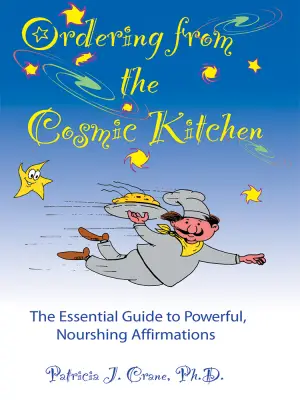Crafting a compelling screenwriter bio can be a challenge. Writers often struggle to balance personal storytelling and professional achievements. The primary focus should be to convey your unique voice while presenting relevant information about your expertise and experience. So, how do you create a screenwriter bio that stands out?
A successful screenwriter bio should be engaging, concise, and informative, highlighting your accomplishments and unique voice without being overly verbose.
Table of Contents
Understanding the Purpose of a Screenwriter Bio
The primary function of a screenwriter’s bio is to introduce oneself to industry professionals and potential collaborators. Whether you’re pitching a script, applying for grants, or networking at industry events, your bio serves as the first impression of your work and personality.
What Should Your Bio Include?
Your bio should include key elements that showcase your journey as a screenwriter. These elements often include:
Start with a Hook
Engage your reader from the very beginning with a captivating first sentence. This could be a unique fact about yourself, a pivotal moment in your career, or a quote that resonates with your screenwriting philosophy. For example, “At the age of 12, I turned my childhood dreams into scripts that my friends acted out in the backyard—little did I know I was sowing the seeds of a career in screenwriting.”
Highlight Your Experience
Your bio should cover your professional experiences. Include relevant projects you have worked on, awards you may have received, and any significant collaborations. Present your experience succinctly.
Consider a hypothetical screenwriter, Jane Doe, who has worked on various indie films and gained critical acclaim for her work. Jane’s bio might read: “With over six years of experience in the film industry, I have written award-winning short films and collaborated with several acclaimed directors, including a Sundance selection last year.”
Education Matters
While formal education isn’t mandatory for screenwriting success, it often adds credibility. Mention any degrees, courses, or workshops that have shaped your craft. For instance: “After obtaining my Master’s degree in Film and Television Production from NYU, I honed my skills further through workshops hosted by industry veterans.”
Showcase Unique Skills and Specialties
What sets you apart from other screenwriters? Perhaps you specialize in comedy, horror, or sci-fi, or you bring unique cultural perspectives. Make your niche clear. For example, “As a bilingual writer with a passion for Latino storytelling, I strive to create narratives that reflect underrepresented voices while maintaining universal appeal.”
Personal Branding and Your Voice
Your personality should shine through. This aspect is where humor and charm can draw the reader in. Consider adding lighthearted elements to your bio to show your approachability. For instance: “When I’m not penning screenplays, you can find me debating the merits of pineapple on pizza or binge-watching shows that keep me up past my bedtime.”
Professional Associations and Networking
Being part of screenwriting organizations can enhance your bio. These affiliations highlight commitment to storytelling and signal strong involvement with fellow creators. Include any memberships or networking groups you belong to, such as the Writers Guild of America or local screenwriting circles.
“I’m proud to be a member of the Writers Guild of America and regularly attend workshops with the Los Angeles Screenwriters Collective, where inspiration flows as freely as the coffee.”
Awards and Recognition
If you’ve received industry accolades, list them. Whether it’s a screenplay that won a competition or a film that gained international recognition, awards provide a solid foundation for your credibility.
Imagine that Jane has received accolades such as: “My screenplay ‘Wanderlust’ won the Best Narrative Feature at the 2022 Brooklyn Film Festival and was nominated for the Best Screenplay at the Texas Independent Film Festival.”
Past Projects and Contributions
As a screenwriter, don’t hesitate to include past projects that showcase your versatility and creativity. Mentioning notable works can pique interest. Consider this entry: “My latest project, ‘Dream Chasers,’ is currently in pre-production, blending drama, adventure, and emotional depth.”
Collaborative Experiences
If you have collaborated with notable figures in the industry, please list their names. This approach not only highlights your skills but also affirms your standing within the community. For example: “I had the honor of collaborating with Oscar-winning director Jamie Smith on a documentary exploring the lives of musicians in the 21st century.”
Your Future Goals
What are your aspirations? Potential collaborators want to know your direction. Share your ambitions honestly. “As I continue to evolve as a screenwriter, I aim to experiment with multimedia storytelling and explore how narratives can cross platforms in the digital age.”
Example of a Strong Bio
Here is a fictional example of a bio that encapsulates these elements:
Jane Doe is an award-winning screenwriter hailing from Los Angeles, where she developed her passion for storytelling during long summer afternoons at the local library. With a Master’s in Screenwriting from the University of Southern California, Jane has had multiple short films premiere at renowned film festivals, including Sundance and Tribeca. Her debut feature film, “Lost in Reality,” was nominated for Best Original Screenplay at the Golden Globes. Jane’s work often explores themes of identity and belonging, drawing from her own experiences as a biracial woman in today’s society. Currently, she is working on an adaptation of a beloved YA novel, set to hit theaters next year.
Tailoring Your Bio for Different Audiences
One bio won’t fit all scenarios. It’s crucial to tailor your bio based on the audience’s needs and expectations.
Industry Professionals vs. General Audiences
Target industry professionals with proof of skills and respected qualifications. Speak with precision, using terms recognized in the field. Highlight achievements that set you apart.
Example: “Award-winning writer with over ten years in screenwriting, my scripts navigate the complex interplay between human emotions and societal challenges, actively garnering attention from established production houses.”
For a general audience, adopt a more conversational tone. You might want to include more personal anecdotes or fun facts that make your bio relatable.
Example: “When I’m not typing away, you’ll find me experimenting with new coffee brewing methods or binge-watching classic films—always with a notepad in hand!”
The Importance of Tone and Voice
Your bio should reflect your style as a screenwriter.
Infusing Personality
Let your personality shine through! Consider the tone of your writing in your scripts. If you write lighthearted romantic comedies, your bio could carry some humor and wit. If you often tackle serious themes, reflect that in your language and approach.
Example: “I enjoy making people laugh, but also want to poke at the deeper sides of life. When you watch my films, prepare for a rollercoaster of emotions—and maybe a few unexpected plot twists!”
How to Update Your Bio
As your career progresses, so should your screenwriter bio. Regularly update it to include new projects, accolades, or changes in focus.
A Checklist for Updating
- New Credits: Have you been involved in new projects?
- Awards: Any recent accolades that merit attention?
- Changes in Focus: Have you shifted topics or genres in your writing?
- Personal Growth: Have any life experiences impacted your work?
Keeping your bio current allows you to present an accurate portrayal of yourself and your work to potential collaborators, producers, and audiences.
Where to Use Your Screenwriter Bio
Knowing where to place your bio is as vital as writing it.
Essential Spaces for Your Bio
- Industry Websites: Platforms like IMDb, LinkedIn, or industry-specific networking sites are perfect for showcasing your bio.
- Personal Website: A well-designed personal website is a must-have for every writer. Your bio will act as your introduction.
- Social Media: Platforms like Twitter and Instagram are great for more casual, relatable bios.
- Pitch Meetings and Networking Events: Keep your bio handy when you’re meeting industry pros.
Example of a Tailored Bio for Social Media
For platforms like Twitter, focus on succinctness while maintaining your essence:
“Screenwriter & coffee lover. My scripts blend humor with heart, tackling life’s quirks—proud winner of the ABC Screenwriting Award. Currently adapting ‘Teen Dreams’ to the big screen.”
Additional Information
Screenwriters often have intriguing backstories and lesser-known facts that can be just as fascinating as the films they create. Here are some secrets that might surprise you:
- Writer’s Room Dynamics: Many screenplays are not the work of a single writer. In the world of television, a concept of a “writer’s room” exists. It lets multiple writers collaborate and brainstorm ideas, making the final product a collective effort rather than an individual vision.
- Spec Scripts: Before their big breaks, many successful screenwriters wrote spec scripts—scripts created on speculation without any guarantee of selling them. Some classic films began this way, showcasing the writer’s unique voice and style.
- Rewriting Is Key: Most successful screenplays undergo numerous rewrites. The first draft is often just a starting point. Revisions can change characters, plotlines, and even the tone of the story entirely.
- Networking Matters: Networking plays a significant role in a screenwriter’s success. Many writers start through connections, meetings, and industry events, leading to opportunities they never imagined.
- Diverse Backgrounds: Many screenwriters come from varied fields such as journalism, law, or even medicine. Their unique experiences often contribute to more authentic and layered storytelling.
- Adaptation Experience: Many accomplished screenwriters build careers by transforming books, short stories, and articles into scripts. The ability to capture the heart of a work during adaptation draws ongoing attention in the film industry.
- Distinct Format: Screenwriting demands a unique set of formatting rules, often diverging sharply from standard writing practices. Always follow the screenplay format because producers and directors only take scripts seriously when they meet strict standards.
- Persistence Pays Off: Many well-known screenwriters faced numerous rejections before finding success. It’s common for even established writers to have stories of struggle, showing the importance of perseverance.
- Need for Simplicity: Screenwriting often requires conveying complex emotions and themes in concise, straightforward dialogue. Great screenwriters excel at showing rather than telling, allowing audiences to interpret the story from their own perspective.
- Inspiration Sources: Screenwriters find inspiration everywhere—from their personal lives to random conversations overheard on the street. A simple line or a unique scenario can spark an entire screenplay idea.
Frequently Asked Questions (FAQs) Related to Screenwriter Bio
Q. What should appear in a screenwriter’s bio?
A. A screenwriter’s bio should include their background in writing, relevant experience, notable achievements, and any awards or recognition received. It’s also helpful to mention specific genres they write in and any collaborations with directors or producers.
Q. How long should a screenwriter’s bio be?
A. A screenwriter’s bio should typically be one paragraph to a page long, depending on the context. In most cases, keep it concise—about 300 words is a solid length.
Q. Should I include personal details in my screenwriter’s bio?
A. Including personal details can add flavor to your bio, but stick to relevant information. Mention where you’re from, your writing influences, or experiences that shaped your writing journey.
Q. Is it important to update my screenwriter’s bio?
A. Yes, updating your bio is crucial. Whenever you complete a new project, win an award, or experience a significant career change, refresh your bio to keep it current and showcase your latest accomplishments.
Q. Can I use a funny tone in my screenwriter’s bio?
A. A humorous tone can work if it aligns with your writing style and target audience. Ensure it doesn’t overshadow your professionalism or detract from your achievements.
Q. What’s the best way to start my screenwriter’s bio?
A. Start with a strong statement about who you are as a screenwriter. This approach could highlight your experience, a unique aspect of your work, or a passion for storytelling that defines your writing.
Q. Should I mention my education in my screenwriter’s bio?
A. Yes, mentioning your education can add credibility. Focus on relevant degrees or courses related to writing or film, especially if they have shaped your skills as a screenwriter.
Q. How do I tailor my screenwriter’s bio for different audiences?
A. To tailor your bio, consider the audience’s interests. For industry professionals, focus on experience, collaborations, and awards. For fans or casual readers, emphasize your storytelling passion and style.
Q. Can I include links to my work in my screenwriter’s bio?
A. Absolutely! Share your scripts, websites, or social media by linking them, so readers and industry contacts find your work and learn more about you.
Q. What is the biggest mistake to avoid when writing a screenwriter’s bio?
A. One big mistake to avoid is making it too vague or generic. Be specific about your achievements, writing style, and experiences. A strong bio reflects your unique voice and contributions in the screenwriting world.
Conclusion
Crafting a compelling screenwriter bio is vital for making a strong first impression in the competitive world of film and television. By highlighting your unique experiences, skills, and accomplishments, you can showcase what sets you apart from others. Remember to keep it concise, engaging, and relevant, allowing your personality and passion for storytelling to shine through. With a well-written bio, you can open doors to new opportunities and connections within the industry. So, take some time to refine your story and let it be the key that unlocks your screenwriting journey.







